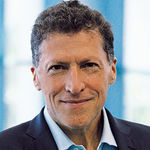
Arnie Weissmann
Sylvia Earle recently raised her profile in the travel industry. She has been a guest speaker on Lindblad Expeditions' National Geographic cruises, Aurora Expeditions named a ship for her, and last week, she became godmother of the Explora I, the first ship from MSC's new luxury line.
If you're not familiar with Earle, she's an 88-year-old marine biologist known for her fierce dedication to protecting oceans. She has published more than 200 scientific papers, is a National Geographic Explorer in Residence, won the TED Prize, has 29 honorary doctorates and founded the nonprofit Mission Blue.
In 1998, she was named the first Time Magazine Hero for the Planet.
Her participation in the cruise industry is somewhat unexpected, given that there's no shortage of environmentalists who are also vehement critics of cruising. Earle not only accepted the offer to be godmother to a cruise ship; she's godmother to a ship owned by the world's largest shipping company, the leader in an industry that has been singled out as an even greater contributor of carbon emissions than airlines.
I know many people in the travel industry who both understand the existential threat of climate change and simultaneously see the tremendous benefits of travel. It's a conundrum, weighing the significant cultural, economic and restorative benefits of travel against the resulting emissions it produces.
I wondered: Did Earle feel any cognitive dissonance about lending her name and reputation to a cruise line and affiliating with shipping, as well? I called her to ask.
"It's certainly something I have deliberated about," she said. "I realize it's a controversial step, maybe even personally awkward, given my track record."
She noted that "we have all the evidence anybody would ever want to say we're on our way to a place that's inhospitable to us. How do we move more quickly in the right direction? How do we get from slow motion to something that motivates people to act?"
She saw with Explora I "an opportunity to reach an audience that has gone to be entertained on the ocean" and help them become better acquainted with the environment and gain "a greater understanding of why the ocean matters."
Earle was also impressed with MSC's transformation of Ocean Cay from an industrial mining site in the Bahamas to a marine reserve that's also a private island for MSC Cruises.
"They've planted thousands of native trees and shrubs and restored not just the land but the surrounding seas with corals and mangroves. It's an example of what can be done to change the trajectory of decline," she said.
Ocean Cay has applied to be a "Hope Spot" that Earle's Blue Mission organization spotlights as examples of where degradation of oceans has been reversed or efforts are made to protect what's in good condition.
"I feel very strongly that we have to work with industry," she said. "We can't just talk to ourselves and think that we're going to get to where we need to be. My approach is to go with a handshake rather than a fist.
"The best education on the planet is travel," she continued. "It's a privilege to see elements of the world that you cannot if you just stay in one place. It's a chance to gain a greater sense of empathy, not only for other people but for the creatures that share the planet with us."
Earle said she felt "obliged" when invited by MSC to provide guidance in terms of what people will hear when they travel the oceans.
"That can have an impact. If you don't know, you can't care," she said. "There's an opportunity to inform people who have the power and maybe the inclination to get behind change. My interest is in winning hearts and minds to think differently about protecting the natural world."
Further to MSC, she said, "I know they're looking at fuel efficiency in a major way. They're evaluating things that are better for the environment that are also better for their bottom line. I am really motivated to work with those who seem motivated to change in ways that will improve the current situation."
Toward the end of the conversation, Earle said, "I actually feel honored to be asked to be involved in something that could be an avenue for change in the right direction. I've been given an opportunity to help people see more clearly how they can make a difference. I may be disappointed, but I have to try. Let's see where it goes."
The word "hope" came up frequently in our conversation: Earle said that among her goals in creating Hope Spots is to "create a network of hope around the world."
I'm very encouraged that she believes the travel industry has a place in that network. And I hope others are inspired by her template to use our industry's platforms not only to educate but to act.